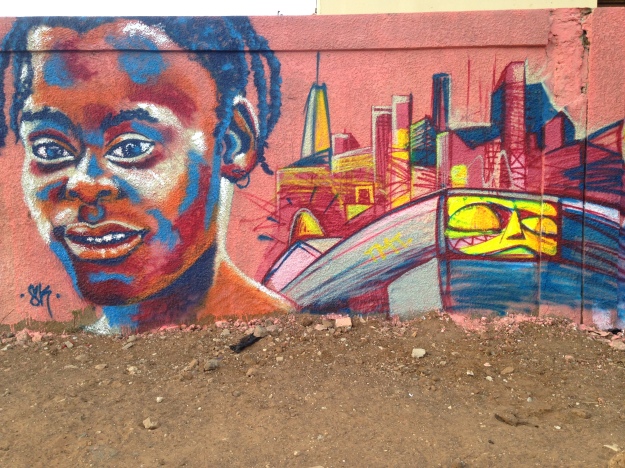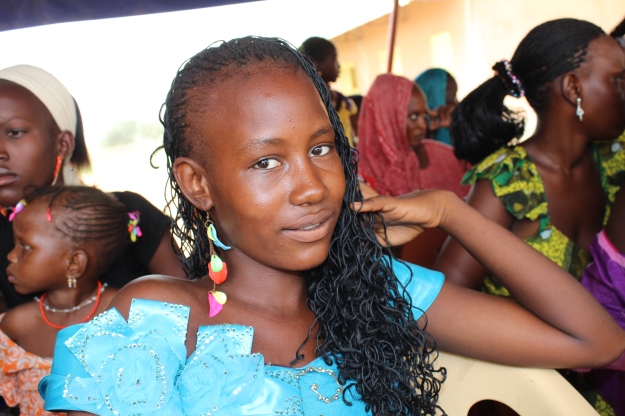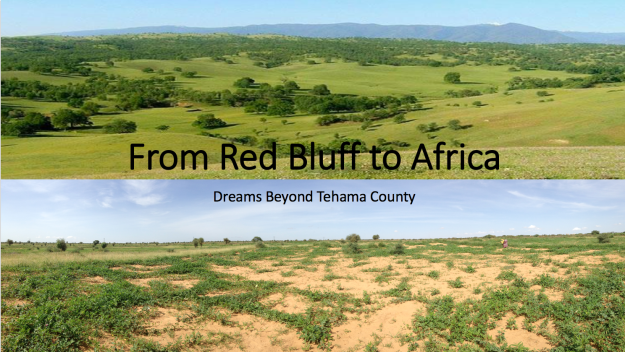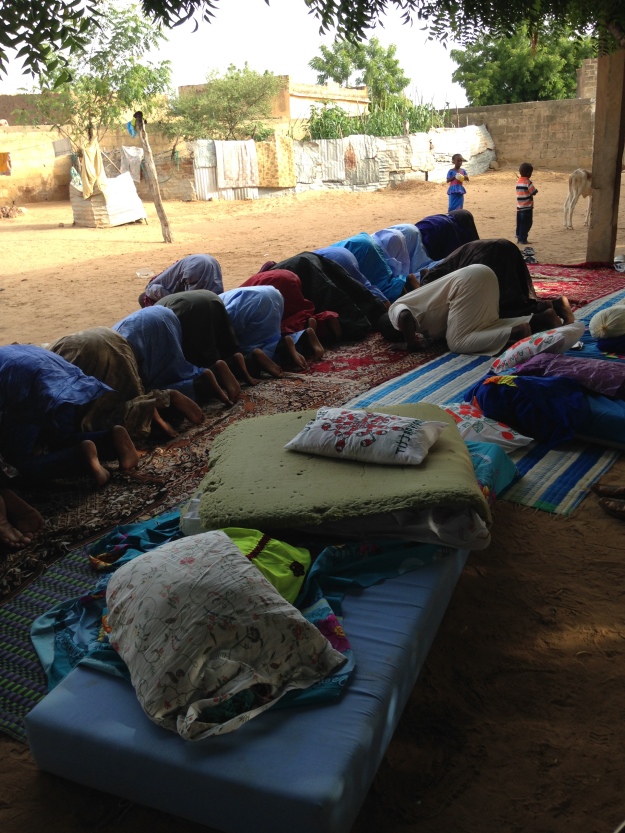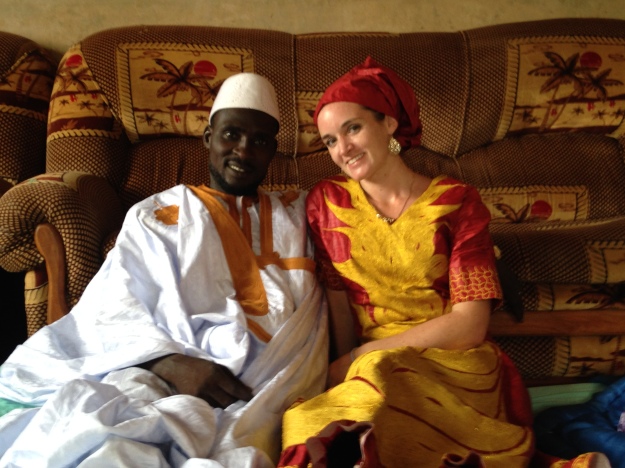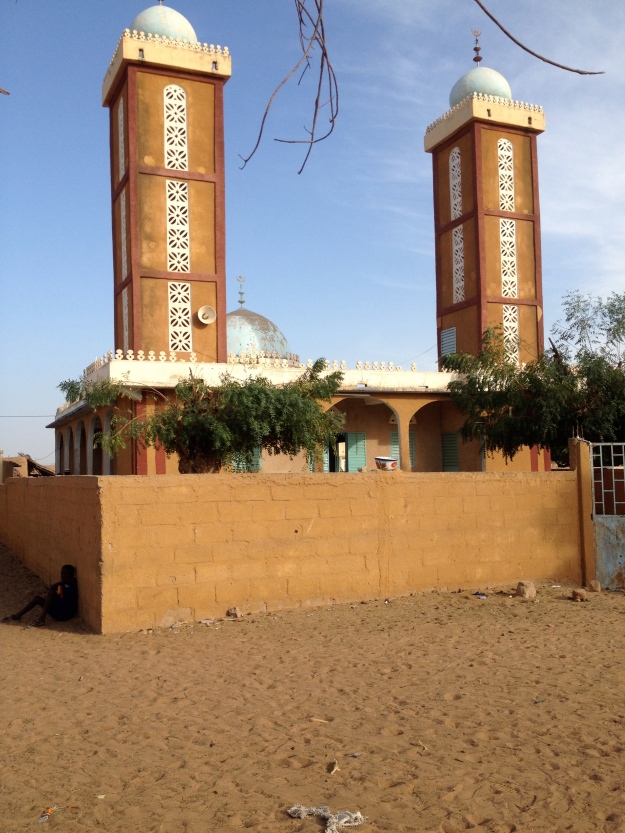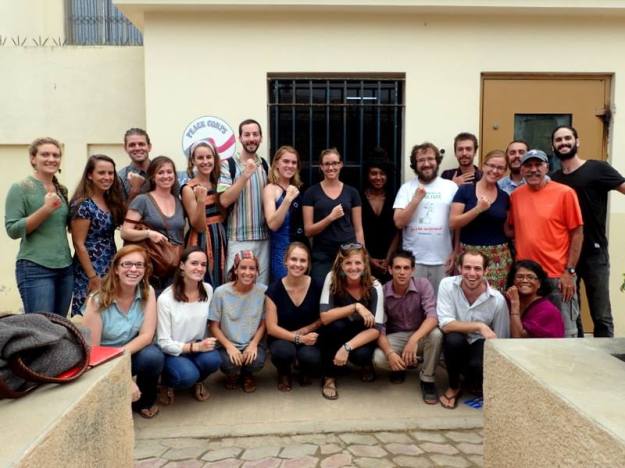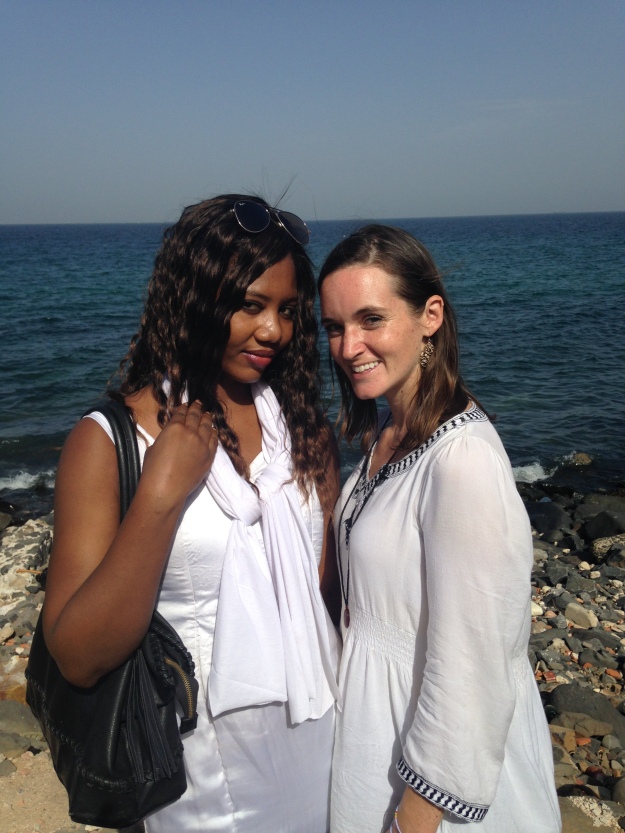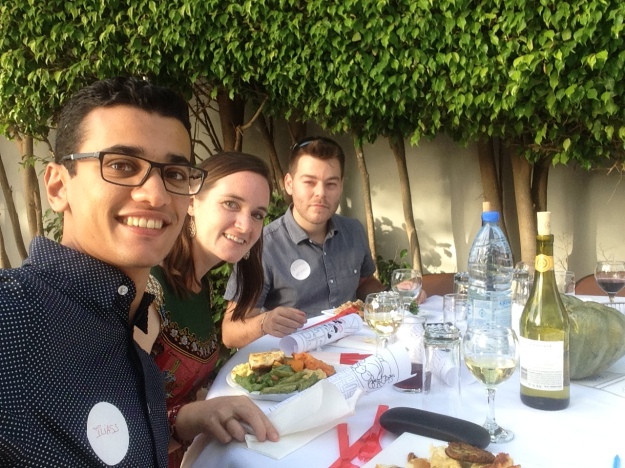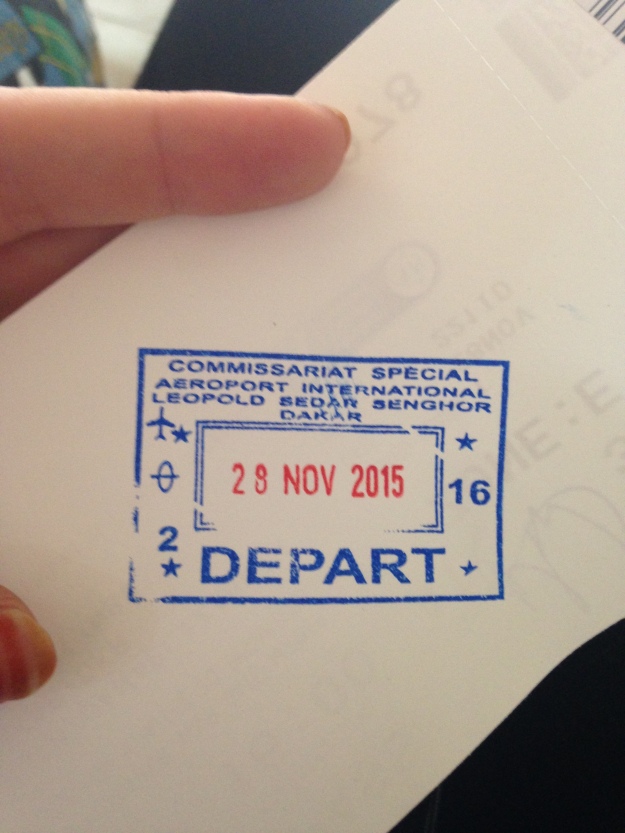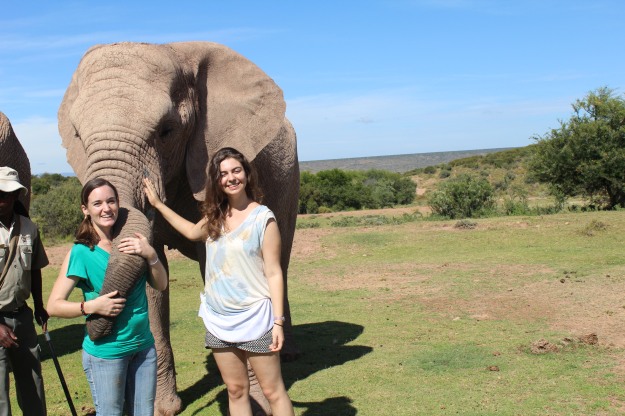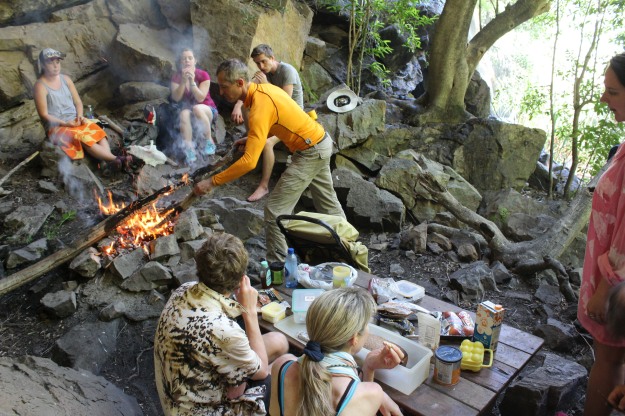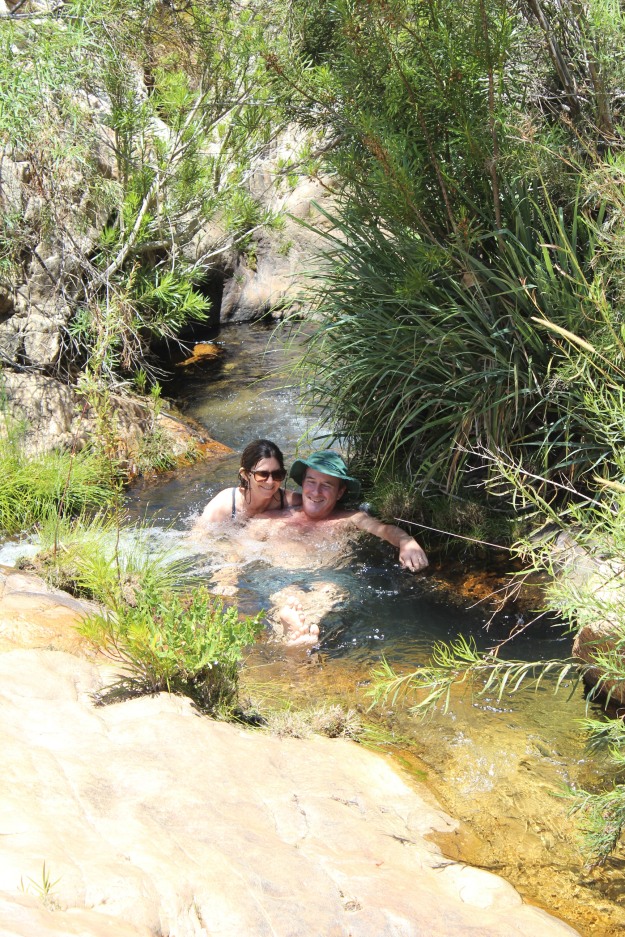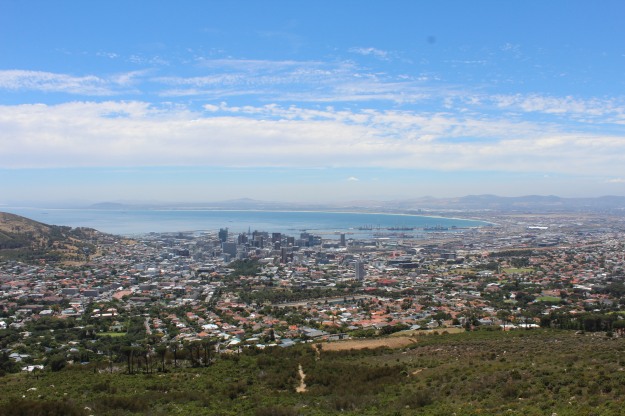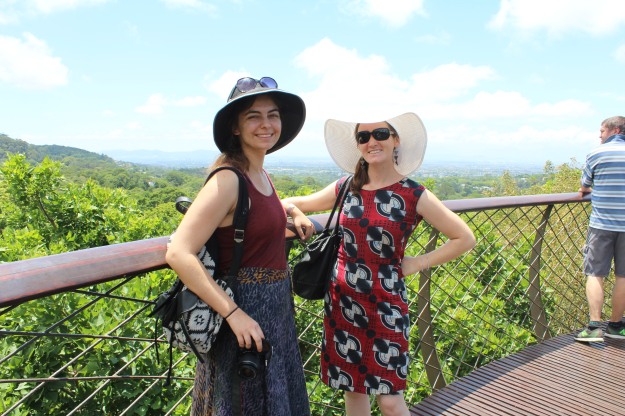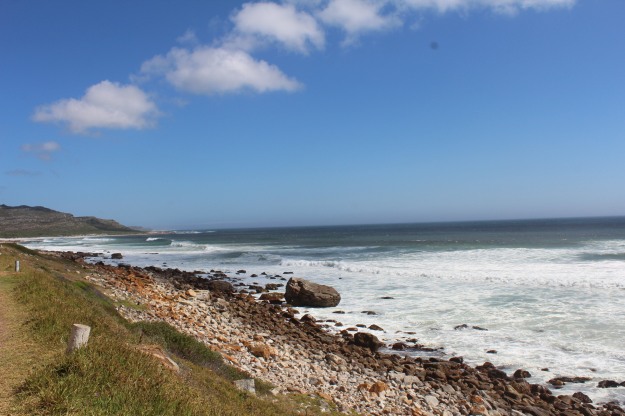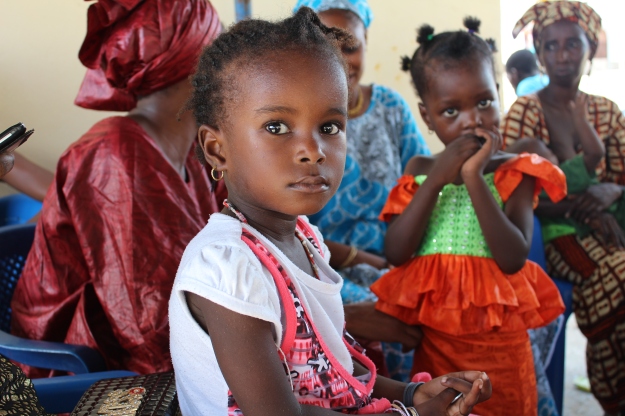Bissimillah! Welcome to an introduction and glimpse into an amazing language and culture.
The most important part of most West African cultures is the appreciation of one another. This is demonstrated in the language through greetings, which become the most important thing you could possibly master when new to any country. Greet everybody because… they are human, you are human, you both exist in this space we call Earth, we are encountering each other in this thing we call life. To ignore is to miss. To shun. To ignore. Acknowledging and appreciating one another is the most basic (and, should be, self-evident) form of human respect. Humans are social beings. The most (what some consider) ‘basic’ human societies understand this so much better than ‘advanced’ societies, and the overall happiness and interconnectedness is evidence of this fact.
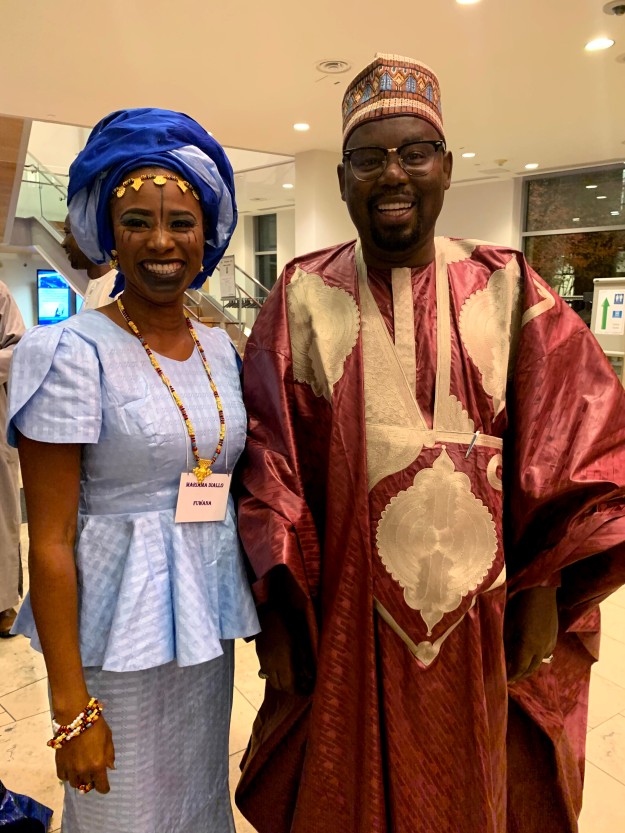
Mariama Diallo, member of the Fulani Women’s Association of North America, and Cheikh Niang the Senegalese Ambassador to the United States
This is a basic overview of the language called Pulaar, or as some call it, Tukelleur, or as a reference to the region of Senegal where this dialect is spoken, Pulaar du Nord. This is the dialect of Fula/Fulfulde/Fuladu/Fulakunda/Pul that is spoken in the Northern region of Senegal and the Southern region of Mauritania. Fula is a language that has many dialects and spans across West Africa. This language is spoken in more than 20 countries. I am by no means an expert about this language. This is basically an overview that I would have appreciated having upon my arrival to Senegal, and I hope that it becomes helpful to others who will be traveling to the beautiful countries of Senegal and Mauritania. Language will enrich your experience.

Chez Dior, Hyattesville MD
Pulaar (Tukelleur, Pulaar du Nord,) Language Introduction
Long vowels are denoted as double vowels (aa = ‘aahhh’, ee = ‘ehhh’, oo = ‘oh’). All words are written phonetically in English phonetics.
| Greeting (hello) *Arabic origin | Asalaam Maleykum |
| – Response | – Maleykum Salaam |
| Hello/How are you | No mbad daa? |
| – Response to ‘how are you’ = peace only | – Jam tan |
| Are you well/how is your health? | Ada selli? |
| – I am fine | – Mawdum |
| How are you doing with the tiredness? | No mbadu-daa e tampere? |
| – Peace only | – Jam tan |
| How are you doing with the heat? | No mbadu-daa e nguleeki? |
| – Peace only (it’s hot) | – Jam tan (ina wuuli) |
| How is your family/house? | No galle ma wadi? |
| – They are well/in peace | – Ebbe e jam |
| Yes | Aye |
| No | Alla (not to be confused with Allah = God) |
| Welcome | Bissimillah |
This can go on indefinitely, asking about different aspects of the family, the day, etc. Time-specific greetings are important as well.
Morning Greetings
| Did you spend your night in peace? | A waalen e jam? |
| – Peace only | – Jam tan |
| Did you wake up? (Representative of a country with a high death rate, this is a real question) | A finii? |
| – Peace only, praise god | – Jam tan Alhamdullilah |
Afternoon Greetings
| Have you passed the day in peace? | A niallen e jam? |
| – Peace only | – Jam tan |
Evening Greetings
| Have you passed the day in peace? | A hiiren e jam? |
| – Peace only | – Jam tan |
| Goodnight | Mbaalen e jam |
| – May you live | – Yaa wuur |
If it isn’t evident, peace is a central tenant of the Senegalese society. In more than one language in the country of Senegal, peace is the response to the most common questions throughout the day. Senegalese people will tell you that Senegal is the land of ‘peace and hospitality’ and they are not exaggerating. Look at the history of the country; there have been very few wars or conflicts. There are tribes in Senegal, but tribal conflicts rarely exist. There is, instead, a joking culture among tribes who consider each other cousins. Even with a ‘slave’ class of people, tribal inequalities do not present themselves in ways in which we would assume. Instead, in the villages, they present themselves as functional groups, each tribe contributing a specific job type or resource with pride of its heritage.
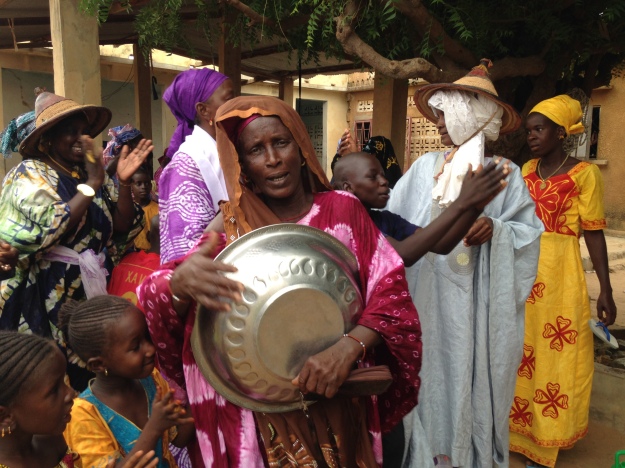
Grammar
This is where the language becomes the most difficult and intricate. There are many dialects of Pulaar/Fula/Fulani. Most of the dialects are mutually intelligible, having mostly similar roots. Grammar is what distinguishes the dialects (as well as the greetings being different). There appears to be an argument about which dialect preceded the others. However, I have not been successful in finding the linguistic research on this subject. [NOTE: If you have more information about this, please send it my way.] The Pulaar speakers in Northern Senegal believe that their language was the earlier dialect, evidenced by the fact that it is the most linguistically complicated and structured.
Similar to Latin-based languages I have learned, learning grammar can be accomplished by following a basic structure of pronouns: me, you, he/she/it, we (inclusive and exclusive), you plural, and they. The beginning of the verb will change depending on if it is singular or plural. The end of the verb will change depending on if it is present/past/conditional/etc. The ending of the verb also changes depending on if it is the first group: direct action, second group: semi-active, or the third group: indirect or passive action. The root (middle) of the verb is the only way to distinguish what is being said. And even that can change…
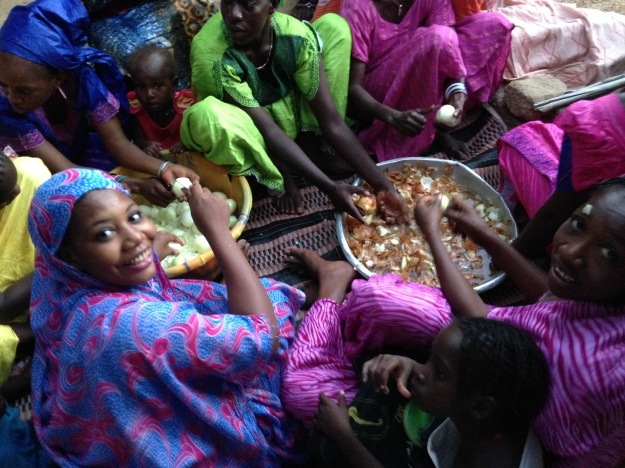
Here are some verbs
First group verbs (direct action verbs)
Yahde To go (root: yah-)
Yarde To drink (root: yar-)
Finde To wake up
Anndude To know
Windude To write
Second group (semi-active)
Jogaade To have (root: jog-)
Joodaade To sit (root: jood-)
Daanaade To sleep
Third group (indirect or passive)
Waleede To be helped (root: wal-)
Nodeede To be called (ex: on the phone)
Topiteede To be taken care of
Conjugation
Yahde To Go (present tense)
Mi Yahat I go
Aan yahat You go
O yahat He/she/it goes
Enen/minen njahat We (inclusive/exclusive) go
Onon njahat You (plural) go
Kambe njahat They go
(notice how the beginning vowel changes when plural. When a verb starts with ‘a’, ‘c’, ‘g’, ‘h’, ‘j’, ‘s’ ‘u’, ‘y’, it changes when plural)
More conjugations of ‘Yahde’
Aa yahii You went (past)
O yahatno He was going (often, in the past) or, used to go
On njahii You all went
Be njahatno They were going (often, in the past) or, used to go
Negation
Negatives are made by simply changing the ending. To make something negative, like, ‘I did not go,’ you would change the ending to the negative ending -aani. Mi yahii – I went… Mi yahaani – I did not go. -aani is the negation ending that applies to the present and past tense. There are other endings to negate present/future verbs.
Examples of Consonant changes
A – changes to ng (amde – to dance, changes to ‘Be ngamat’ – they dance)
F – changes to p (finde – to wake up, changes to ‘Min pinii’ – we woke up)
H – changes to k (hokkude – to give, changes to ‘On kokkat’ – you guys give)
J – changes to nj (joodaade – to sit, changes to ‘Be njoodima’ – they sat)
Wa – changes to mb (walleede – to be helped, changes to ‘En mballeete’ – we were helped)
Wu – changes to ng (wuujude – to steal, changes to ‘Kambe nguusti’ – they stole)
Y – changes to nj ( yahde – to go, changes to ‘Min njehii’ – we left/went)
It continues with most letters except B and L and the funny letters that we don’t have on an English/French keyboard, but they include the Spanish n, a B with a tail, and a D with a tail.)
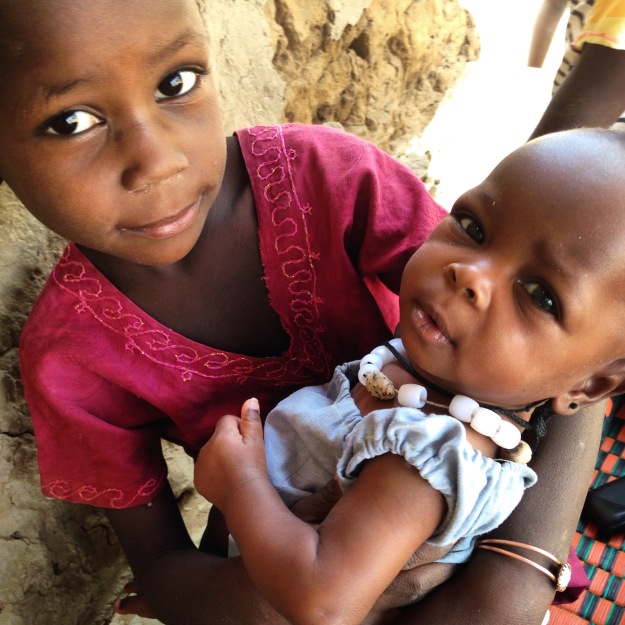
Interesting language notes
‘I want’ and ‘I like’ are said using the same phrase
To drive, to ride a bike, or to drive any other form of transportation, you use the verb ‘to run’ and change it to mean ‘to make run,’ adding whatever it is that you are making run, be it car, bike, etc.
It is very rude to tell someone that what they said is not true, which essentially would be accusing them of being a liar. There are many ways to beat around the bush, saying things like, ‘I don’t think so’ or ‘maybe….’.
Also, saying ‘no’ to someone, turning them down, would be generally rude, so requests are often brushed off or deflected, excuses made, etc. Anything can be avoided with a joke, especially if that joke involves talking about beans.
Inshallah
If you make plans to do something or say you are going to do something, always add ‘Inshallah’ – god willing, or ‘So Alaah jabbii’ – if god agrees. Nothing is for certain and you would not want to jinx anything, so if anything is said to be happening in the future, it is always unsure. This maybe comes from a history of the outcomes of things being unsure and things not always working out as planned. Even ‘until tomorrow’ a common evening goodnight phrase, is followed by ‘Inshallah’. It is with god’s will that that person wakes up the next day. Americans in Senegal often get frustrated at this phrase, however, because it can seem like an evasive tool to get out of doing work. Senegalese people never say no. They will always accept invitations, agree to work with you, but they don’t always mean it necessarily. It would be rude to turn something down outright. So many times, when making meetings or plans, the promise will follow with “Inshallah’, and, consequently, that person might not show up. It may or may not have anything to do with the word. Things happen and life is unpredictable. It could just be the culture of not turning down invitations or requests, but nevertheless ‘Inshallah’ is an interesting aspect of the culture, defining both the history of life and it’s uncertainties in African regions, but also of the relaxed pace of life as it stands presently. Things may or may not get done when you think they will get done. People may or may not show up to meetings or work. But life goes on and everything just has a way of flowing, of working out, usually in unexpected ways that you never could have planned for or expected.


